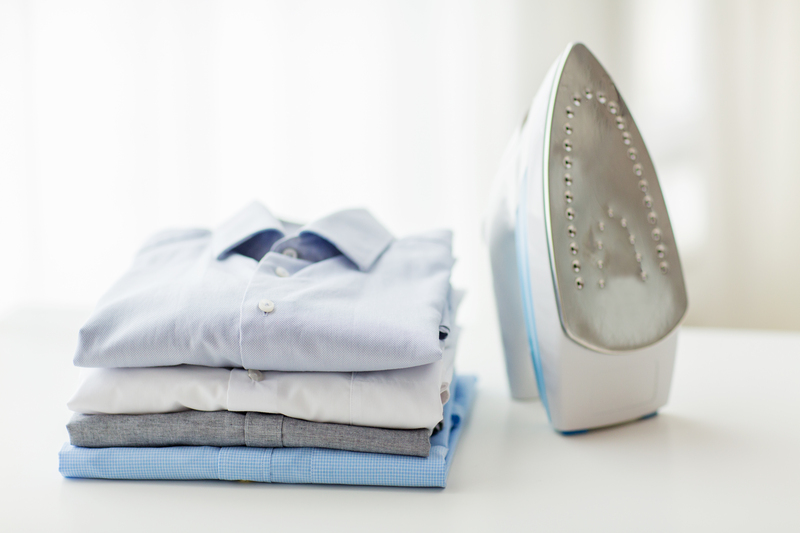Master the Art of Pet Odor Removal from Your Home
Posted on 12/06/2025
Master the Art of Pet Odor Removal from Your Home
Do you cherish your pets but struggle with unpleasant odors they leave behind? Pet odor removal is an essential skill for every pet owner who values a fresh and welcoming home. This comprehensive guide covers effective methods, top products, and proven tips to help you master the art of eliminating pet odors from your home permanently.
Understanding the Root of Pet Odors
Pet-related smells often come from urine, dander, feces, fur, saliva, and pet bedding. These smells can seep deep into carpets, upholstery, hardwood floors, and even walls. Addressing the source is the most efficient way to ensure that your home remains odor-free.
Common Sources of Pet Odors:
- Pet urine and feces accidents (especially with young or elderly pets)
- Litter boxes and pet cages
- Wet fur after rainy walks or baths
- Pet beds, blankets, toys, and carriers
- Pet saliva and dander accumulation on furniture
- Lack of regular cleaning and grooming

Why Pet Odor Removal Matters
Persistent pet smells in your home can be more than just a nuisance--they could impact indoor air quality, create an unpleasant environment for guests, and even trigger allergies. Effectively erasing pet odors doesn't just improve your comfort; it's vital for your household's health and wellbeing.
The Science Behind Pet Odors
Pet odors are caused by organic compounds such as ammonia (from urine), bacteria, and oils in pet fur or skin. Over time, these compounds can penetrate porous materials, making simple air fresheners or masking sprays ineffective. Understanding this will help you choose the best pet odor removal methods for your home.
Step-by-Step Guide to Pet Odor Removal from Your Home
Step 1: Identify Odor Hotspots
- Sniff out areas where odors seem strongest (corners, rugs, under furniture).
- Use a UV blacklight to spot old urine stains--these glow under ultraviolet light.
- Inspect your pet's favorite lounging or sleeping spots.
Step 2: Remove the Source of the Odor
- Promptly clean up any pet accidents using an enzymatic cleaner (these break down and neutralize organic compounds).
- Wash pet bedding, blankets, and toys regularly in hot water and add a cup of white vinegar to the wash cycle.
- Brush and bathe your pets as recommended by your vet to minimize dander and oils.
Step 3: Deep Clean Carpets and Upholstery
- Vacuum carpets, rugs, and furniture using a high-efficiency HEPA-filter vacuum to capture pet hair and dander.
- Use a carpet steam cleaner with a pet-safe enzymatic solution to break down odors at the fiber level.
- Baking soda is a natural deodorizer--sprinkle generously, let sit for several hours, then vacuum thoroughly.
Step 4: Purify the Air
- Open windows regularly to aerate your rooms.
- Use air purifiers with HEPA filters and activated carbon to capture and neutralize airborne pet smells.
- Place bowls of vinegar or activated charcoal in problem areas--they'll absorb lingering odors.
Step 5: Tackle Hard Surfaces
- Wipe floors, tiles, and walls with a mixture of water, white vinegar, and a few drops of pet-safe essential oil like lavender or lemon.
- Disinfect litter boxes, kennels, and crates weekly to prevent odor buildup.
- Don't forget to clean under and behind furniture where smells can linger unseen.
Best Products for Pet Odor Removal
Enzymatic Cleaners
Enzymatic cleaners are the gold standard for pet stain and odor removal. These products contain enzymes that break down urine, feces, vomit, and other messes at a molecular level, eliminating both the stain and the scent.
Popular options include:
- Nature's Miracle
- Rocco & Roxie Stain & Odor Eliminator
- Bubba's Rowdy Friends Pet Stain Remover
Carpet and Upholstery Shampooers
Use a pet-friendly steam cleaner or hire a professional carpet cleaning service every few months. Make sure to use gentle, pet-safe detergents that don't leave toxic residues or strong perfumes.
Air Purifiers
Invest in a quality air purifier with a HEPA filter--this type is highly effective at capturing pet dander, hair, and even some odor particles. Brands like Levoit, Honeywell, and Dyson offer excellent models for pet owners.
Baking Soda and Vinegar
These natural, inexpensive odor removers are safe and effective for most surfaces and fabrics. Baking soda absorbs odors, while vinegar neutralizes ammonia smells.
Homemade Solutions for Odor Removal
Baking Soda Carpet Refresher
- Mix 1 cup baking soda with 10 drops of your favorite pet-safe essential oil.
- Sprinkle on carpets, let it sit for 1-2 hours, then vacuum thoroughly.
Vinegar and Water Spray
- Combine equal parts white vinegar and water in a spray bottle.
- Spray lightly on upholstery or hard surfaces, then wipe with a clean cloth.
Lemon Deodorizer
- Simmer lemon slices in water and let the vapor spread throughout your home.
- Alternatively, use lemon juice mixed with baking soda to scrub stubborn smelly spots.
Preventing Pet Odors: Maintenance Tips
Groom Your Pet Regularly
- Brush your pet's coat to remove loose hair and reduce shedding.
- Bathe your pet with a vet-approved shampoo as recommended for their breed.
- Check ears, clean paws, and clip nails to limit odor accumulation.
Keep Pet Areas Clean
- Change litter and potty pads frequently.
- Disinfect toys, bowls, and bedding weekly.
- Use washable covers on sofas and beds to protect against accidents.
Encourage Good Hygiene Habits
- Train your pets to eliminate in designated areas.
- Address behavioral issues that lead to repeated accidents.
- Reward your pet for using the appropriate spot.
When to Call in Professional Help
Even the most dedicated pet owner might need a little extra help achieving a truly fresh home. If you're facing persistent odors that won't go away despite your best efforts, consider:
- Hiring a professional carpet and upholstery cleaning service specialized in pet odor removal.
- Consulting with your veterinarian if your pet's odor issues are chronic--medical conditions like urinary tract infections or skin issues can cause strong smells.
- Enlisting odor remediation experts if odors have penetrated flooring, drywall, or HVAC systems.
Tips for New and Prospective Pet Owners
Choose the Right Pet for Your Home
- Some breeds are less prone to shedding and have milder natural odors.
- Consider hypoallergenic animals if allergies and odor are concerns.
Create Easy-to-Clean Pet Zones
- Designate pet-friendly areas with hard flooring (tile, laminate) instead of carpets.
- Use washable, durable bedding and furniture covers.
- Invest in pet odor removal solutions right from the start.

Frequently Asked Questions About Pet Odor Removal
- How often should I clean to control pet odors?
Ideally, vacuum and wipe surfaces twice a week, wash bedding weekly, and deep-clean monthly. - Can I use essential oils for pet odor control?
Yes, but ensure the oils (such as lavender or chamomile) are safe for pets, as some oils are toxic. - Will regular air fresheners remove pet odors?
No, most air fresheners only mask odors temporarily. True pet odor elimination comes from treating the source. - Are vinegar and baking soda safe around all pets?
They are generally safe, but be sure pets don't ingest large amounts. Rinse areas clean after deodorizing.
Conclusion: A Fresh Home Is Possible
Mastering the art of pet odor removal from your home is both science and habit. By targeting the source, using effective cleaning products, regularly grooming your pet, and maintaining a clean environment, you can enjoy all the rewards of pet ownership--without the lingering smells. Follow this guide, and your home will remain inviting for family, friends, and pets alike!
For more expert advice, bookmark this page and revisit our top tips whenever you need to banish stubborn pet odors. Happy cleaning!


